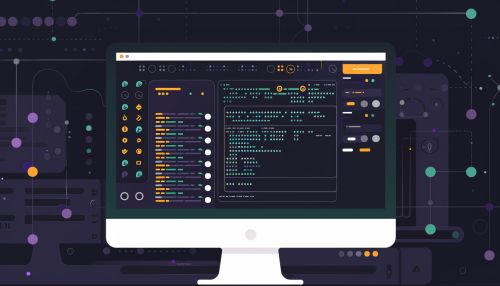Coq
Introduction
Coq is an interactive theorem prover developed in the INRIA project, which stands for the French National Institute for Research in Computer Science and Automation. Coq is used for the formal verification of mathematical proofs and the development of formally verified software. It is based on the Calculus of Inductive Constructions (CIC), a powerful type theory that combines both higher-order logic and a richly expressive type system. Coq provides a formal language to write mathematical definitions, executable algorithms, and theorems, along with an environment for semi-interactive development of machine-checked proofs.
History and Development
The development of Coq began in the mid-1980s as part of the INRIA project. Initially, it was influenced by the Curry-Howard correspondence, which establishes a direct relationship between computer programs and mathematical proofs. The first versions of Coq were developed by Thierry Coquand and Gérard Huet. Over the years, Coq has evolved significantly, incorporating contributions from a wide community of researchers and developers. The system has been used in various high-profile projects, including the formal verification of the CompCert C compiler and the Four Color Theorem.
Features
Coq's features are designed to support the development of formal proofs and verified software. Key features include:
- **Rich Type System**: Coq's type system supports dependent types, which allow types to depend on values. This enables the encoding of complex mathematical properties directly in the type system.
- **Interactive Proof Development**: Coq provides a proof assistant that allows users to develop proofs interactively. The system offers tactics, which are commands that help construct proofs step-by-step.
- **Automation**: Coq includes several automated proof tactics and decision procedures, such as omega for Presburger arithmetic and lia for linear integer arithmetic.
- **Extraction**: Coq can extract executable code from formalized algorithms in several programming languages, including OCaml, Haskell, and Scheme.
- **Libraries**: Coq comes with a rich set of standard libraries, including the Mathematical Components library, which provides formalized mathematics and algorithms.
Applications
Coq is used in various domains, including:
- **Formal Verification**: Coq is widely used for the formal verification of software and hardware systems. Notable examples include the CompCert C compiler, the seL4 microkernel, and the CertiKOS operating system.
- **Mathematics**: Coq is used to formalize mathematical theories and proofs. Examples include the formal proof of the Four Color Theorem and the Feit-Thompson Theorem.
- **Education**: Coq is used as a teaching tool in computer science and mathematics courses to introduce students to formal methods and proof techniques.
Calculus of Inductive Constructions (CIC)
The Calculus of Inductive Constructions (CIC) is the theoretical foundation of Coq. CIC combines elements of lambda calculus, type theory, and inductive definitions. It supports higher-order logic and allows the definition of inductive types, which are essential for representing mathematical objects and properties. CIC's expressiveness enables the formalization of a wide range of mathematical theories and the development of complex software systems.
Proof Development in Coq
Proof development in Coq involves several steps:
- **Specification**: The first step is to write the formal specification of the problem, including definitions, theorems, and lemmas.
- **Proof Construction**: Using Coq's interactive proof assistant, users construct proofs by applying tactics. Tactics are commands that transform the current proof state into simpler subgoals.
- **Proof Checking**: Coq automatically checks the correctness of each proof step, ensuring that the final proof is valid.
- **Extraction**: Once the proof is complete, Coq can extract executable code from the formalized algorithms.
Libraries and Ecosystem
Coq has a rich ecosystem of libraries and tools that extend its capabilities:
- **Standard Library**: Coq's standard library includes basic data structures, arithmetic, and logic.
- **Mathematical Components**: This library provides formalized mathematics, including algebra, geometry, and number theory.
- **SSReflect**: A proof language and set of tactics designed to facilitate the development of complex mathematical proofs.
- **CoqIDE**: An integrated development environment for Coq, providing a user-friendly interface for proof development.
- **Proof General**: An Emacs-based interface for interactive proof development with Coq.
Image


See Also
- Interactive Theorem Prover
- Formal Verification
- Type Theory
- Lambda Calculus
- CompCert
- Four Color Theorem
- Feit-Thompson Theorem
- Mathematical Components
- SSReflect
- CoqIDE
- Proof General
